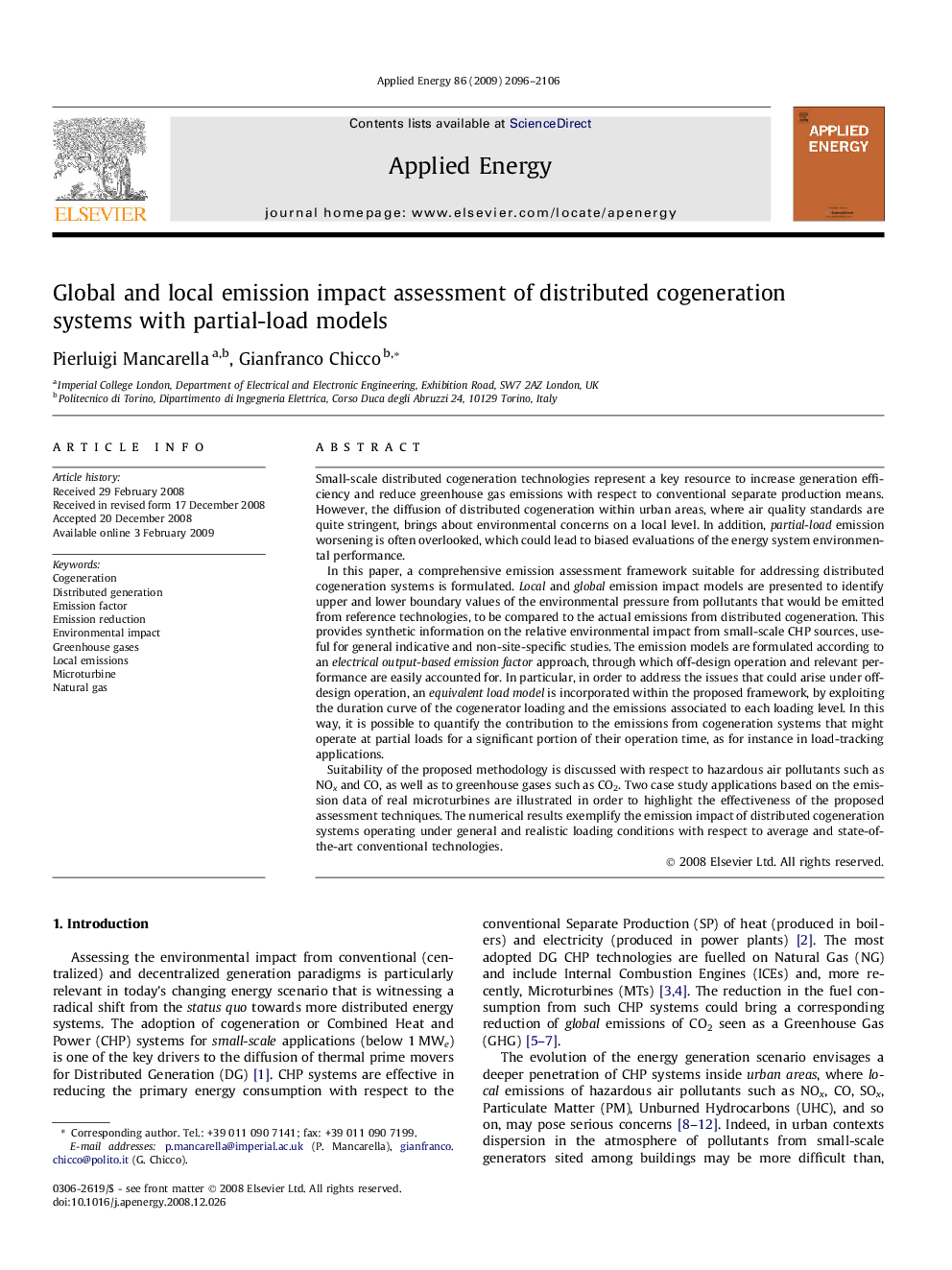| Article ID | Journal | Published Year | Pages | File Type |
|---|---|---|---|---|
| 244994 | Applied Energy | 2009 | 11 Pages |
Small-scale distributed cogeneration technologies represent a key resource to increase generation efficiency and reduce greenhouse gas emissions with respect to conventional separate production means. However, the diffusion of distributed cogeneration within urban areas, where air quality standards are quite stringent, brings about environmental concerns on a local level. In addition, partial-load emission worsening is often overlooked, which could lead to biased evaluations of the energy system environmental performance.In this paper, a comprehensive emission assessment framework suitable for addressing distributed cogeneration systems is formulated. Local and global emission impact models are presented to identify upper and lower boundary values of the environmental pressure from pollutants that would be emitted from reference technologies, to be compared to the actual emissions from distributed cogeneration. This provides synthetic information on the relative environmental impact from small-scale CHP sources, useful for general indicative and non-site-specific studies. The emission models are formulated according to an electrical output-based emission factor approach, through which off-design operation and relevant performance are easily accounted for. In particular, in order to address the issues that could arise under off-design operation, an equivalent load model is incorporated within the proposed framework, by exploiting the duration curve of the cogenerator loading and the emissions associated to each loading level. In this way, it is possible to quantify the contribution to the emissions from cogeneration systems that might operate at partial loads for a significant portion of their operation time, as for instance in load-tracking applications.Suitability of the proposed methodology is discussed with respect to hazardous air pollutants such as NOx and CO, as well as to greenhouse gases such as CO2. Two case study applications based on the emission data of real microturbines are illustrated in order to highlight the effectiveness of the proposed assessment techniques. The numerical results exemplify the emission impact of distributed cogeneration systems operating under general and realistic loading conditions with respect to average and state-of-the-art conventional technologies.
